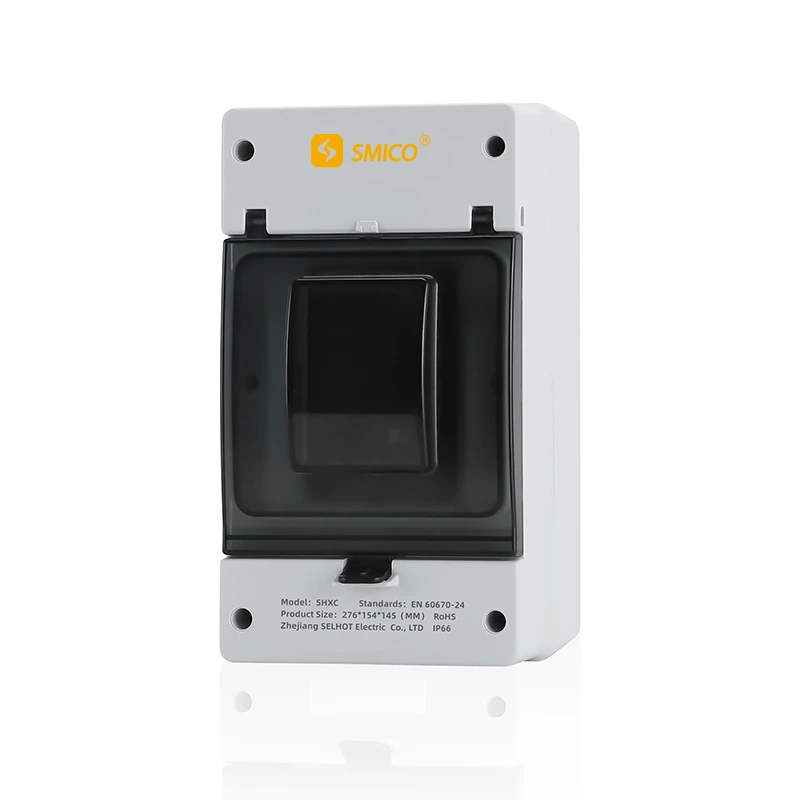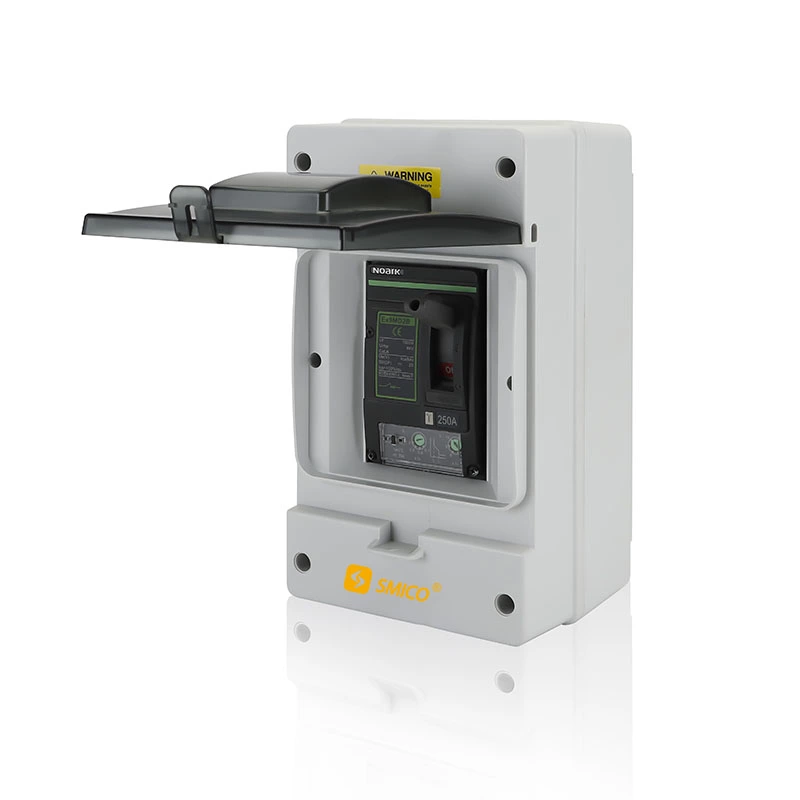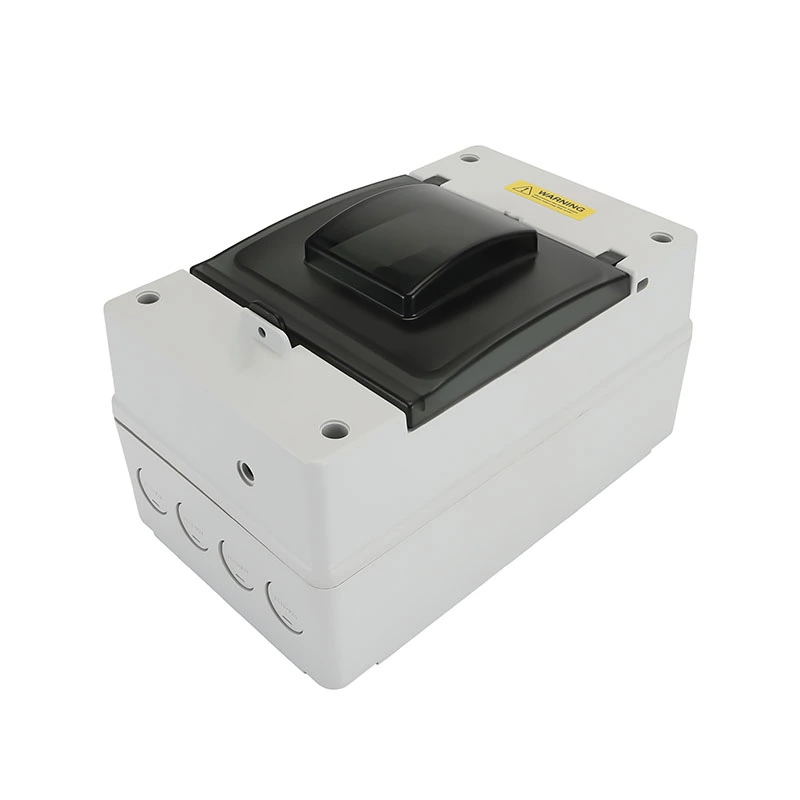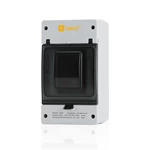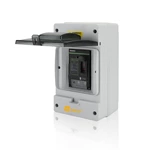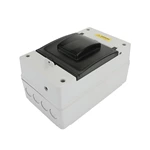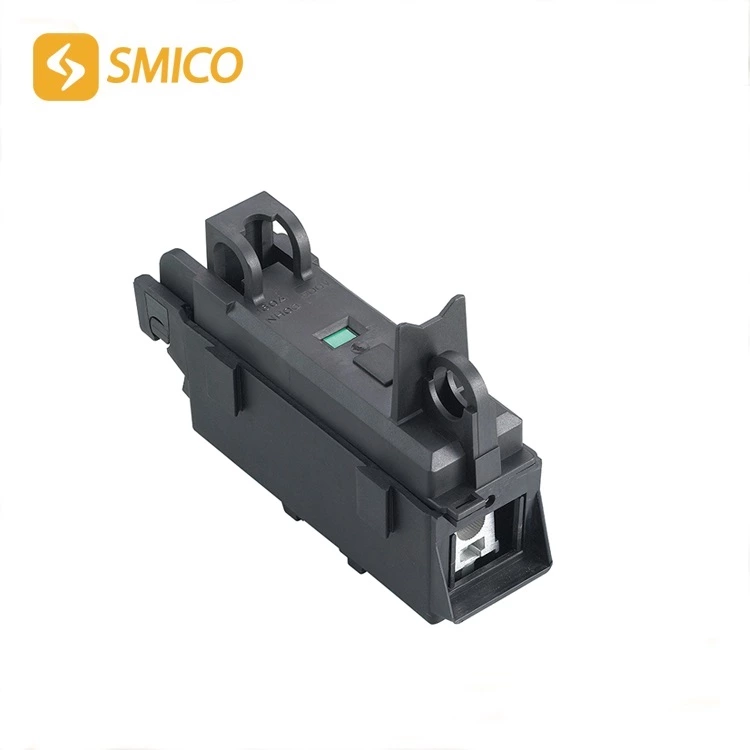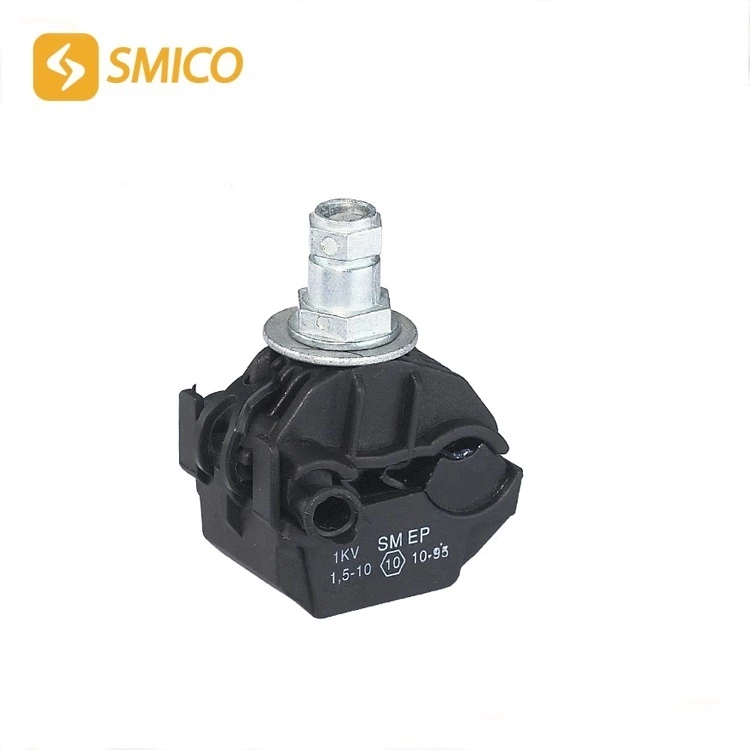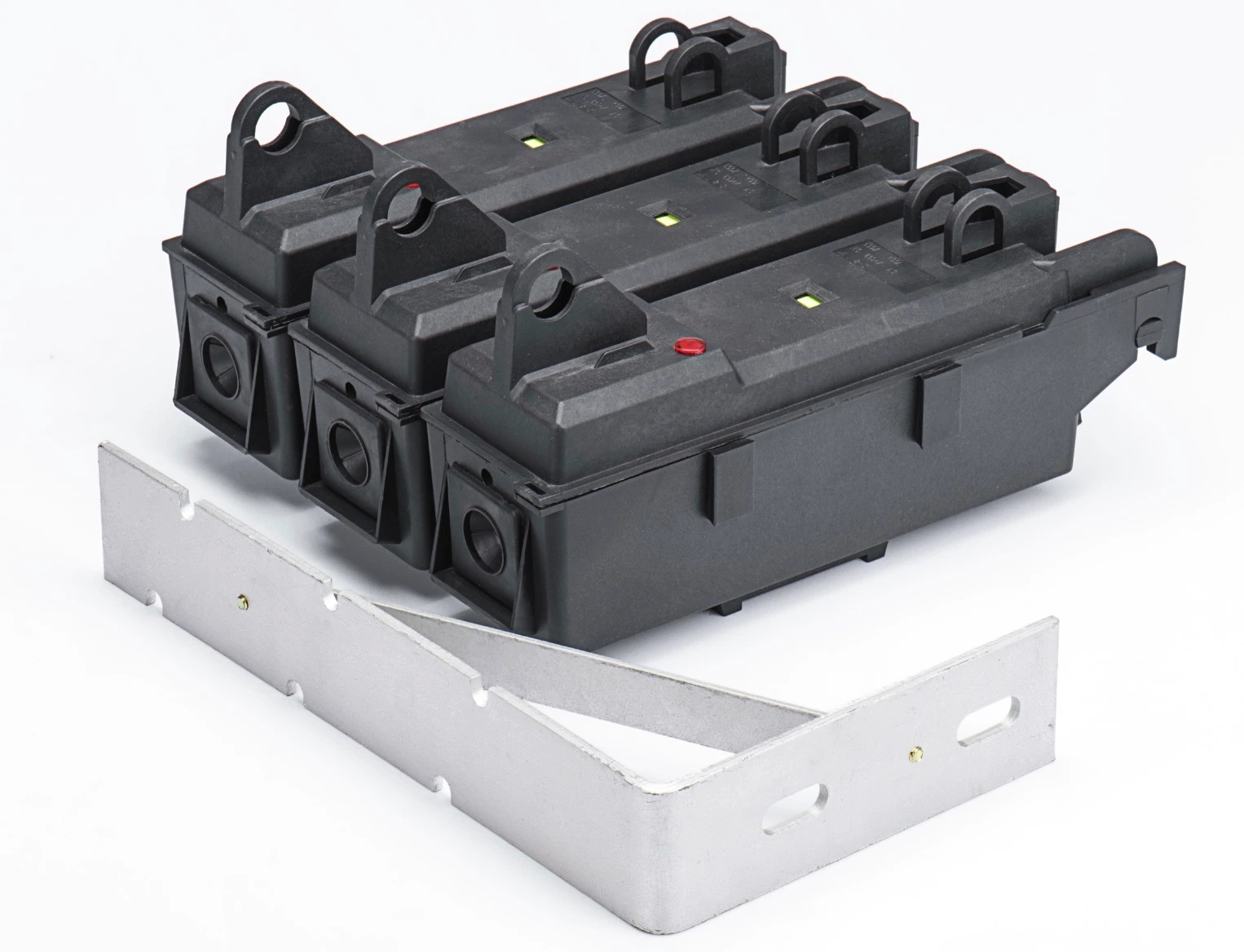DC molded case circuit breaker are built to withstand impact, oxidation, and UV radiation, making them suitable for various environments. They are also designed to be waterproof and dustproof, providing reliable protection for electrical components.
Material characteristics
Material:ABS Shell / PC Door
According to IEC 60695-2-11 glow wire test temperature:650 °C
UL 94 Class:V-2
Temperature resistance:-25 °C up to +80 °C
Rated current (A):100
Halogen-free:Yes
Silicone-free:Yes
Product properties
Number of modules: 2
Number of rows: 1
IP protection level: IP66
Impact protection class:IK09
Flame retardant: 650℃ (30s)
Environmental condition
Application area: Indoor/Outdoor installation
Maximum ambient temperature 24 h: 35 °C
Ambient temperature: -25~+40. max, 95% humidity
Relative humidity: ≤ 50 % at 40 °C, ≤ 100 % at 25 °C
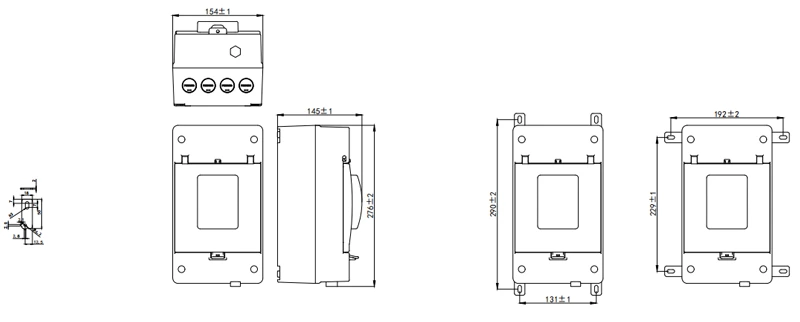
The SOXC distribution box is specifically designed for DC molded case circuit breakers. Its enclosure boasts a waterproof rating of IP65, ensuring reliable protection against water ingress.
SOXC distribution box is equipped with UV resistance, making it resilient against various harsh environmental conditions. Inside, the thoughtful design incorporates vents to prevent the formation of moisture even under significant temperature fluctuations.
Advantages of Photovoltaic (PV) Plastic Distribution Boxes
1. Corrosion Resistance
- Anti-Corrosive Material: Plastic materials exhibit excellent resistance to corrosion, making them ideal for use in humid, salty, or harsh environments, thereby avoiding equipment failures due to rust.
- Rust-Free: Unlike metal distribution boxes, plastic boxes do not rust, which extends the lifespan of the equipment.
2. Lightweight
- Ease of Installation: Plastic distribution boxes are significantly lighter than traditional metal ones, making transportation and installation easier and more cost-effective.
- Ideal for High Altitude Installation: Due to their lightweight nature, they are particularly suitable for installation on rooftops or high places, reducing installation difficulty and risk.
3. Excellent Insulation
- High Insulation Properties: Plastic provides excellent insulation, effectively preventing electrical shock and ensuring greater safety, especially important in PV systems where electrical equipment is dense.
- Reduced Electrical Faults: Minimizes the risk of electrical issues such as ground faults or short circuits, enhancing system safety.
4. Weather Resistance
- UV Resistance: High-quality plastic distribution boxes can withstand UV radiation without aging or becoming brittle, making them suitable for prolonged outdoor exposure.
- Temperature Resistance: Can perform well under extreme weather conditions, including high temperatures, cold, rain, and snow.
5. Water and Dust Proof
- High Protection Rating: Many PV plastic distribution boxes have high protection ratings (e.g., IP65 or above), effectively preventing dust and moisture from entering and protecting internal components.
- Suitable for Outdoor Environments: Capable of stable operation in various harsh outdoor environments, ensuring long-term reliability.
6. Cost-Effective
- Lower Material Costs: Plastic materials are relatively low-cost, and the manufacturing process is simple, reducing overall product costs.
- Low Maintenance Costs: Since they don’t rust or corrode, plastic distribution boxes require less maintenance, lowering long-term operational costs.
7. Environmentally Friendly and Recyclable
- Eco-Friendly Materials: Many PV plastic distribution boxes are made from recyclable plastics, reducing environmental impact.
- Easy to Recycle: Plastic distribution boxes can be recycled and reused at the end of their life, aligning with sustainable development goals.
Applications of Photovoltaic (PV) Plastic Distribution Boxes
1. Residential PV Systems
- Home Rooftop Solar Systems: Provide clean energy for homes, typically installed on rooftops or in yards, reducing dependence on the traditional grid and lowering electricity bills.
- Outdoor Standalone Power Systems: Used for yard lighting, pool equipment, and other small standalone power needs, offering efficient and safe power distribution.
2. Commercial and Industrial PV Systems
- Commercial Buildings: Suitable for office buildings, shopping malls, hotels, and other commercial sites, offering easy installation and durability against harsh outdoor conditions.
- Factories and Industrial Parks: Used for distributing and managing power in large-scale PV systems, improving energy efficiency and reducing operational costs.
3. Agricultural PV Applications
- Greenhouses: Provides power distribution and protection in agricultural greenhouses, supporting the electrical needs for lighting, ventilation, and irrigation equipment in PV agriculture.
- Farms and Ranches: Ideal for installation in farms, ranches, and other complex environments, providing reliable power distribution and protection.
4. Public Facilities
- Public Buildings: Applied in schools, hospitals, government buildings, etc., providing power distribution and protection for PV systems, supporting public energy management.
- Transportation Facilities: Suitable for public transportation facilities such as bus stops and charging stations, offering reliable power distribution systems, supporting the development of green transportation.
5. Remote and Extreme Environments
- Remote Areas: Used in off-grid PV systems, providing standalone power solutions for remote areas and regions without electricity, improving living conditions.
- Harsh Climates: Suitable for use in deserts, plateaus, coastal areas, and other harsh climates, providing a stable and reliable power distribution system.

